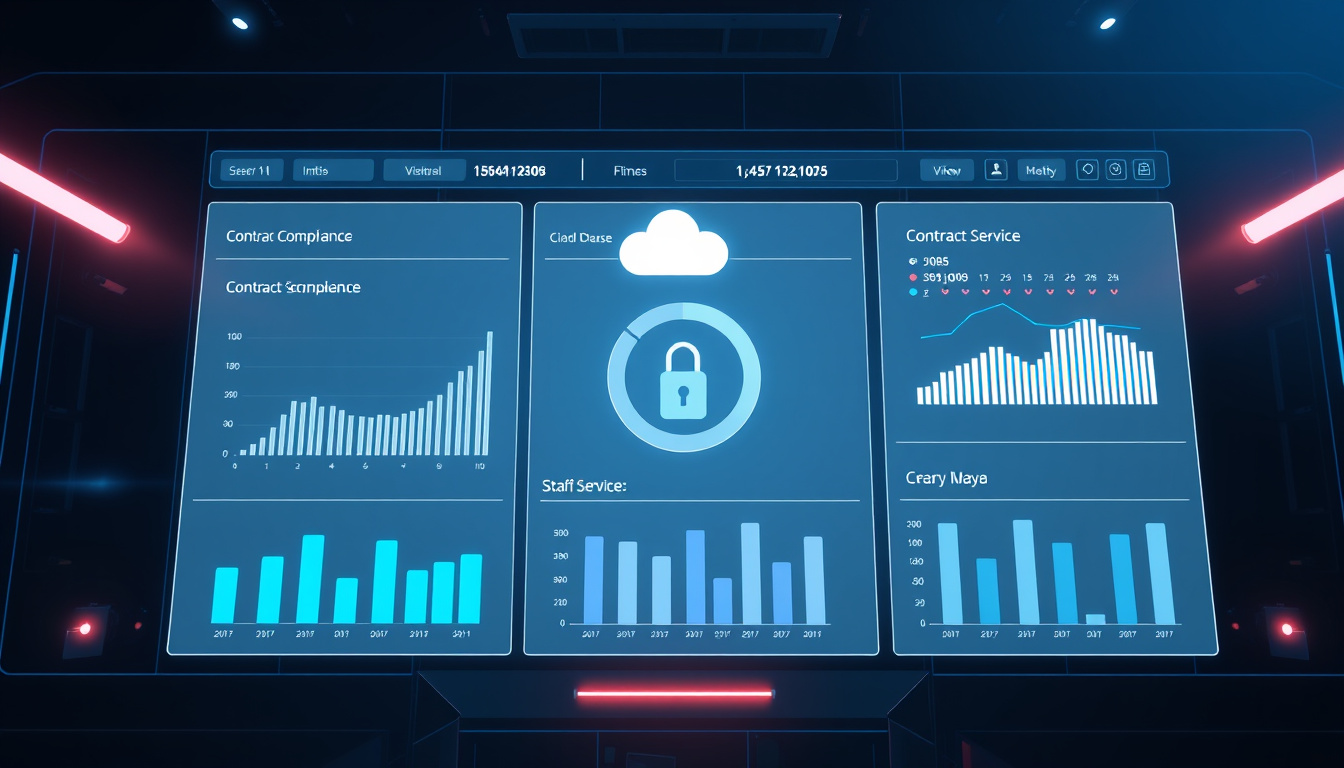Government Contract Compliance Software: Essential Tools for Small Businesses

Navigating government contracts poses problems for small businesses. The work stays clear when rules, reports, and contract tasks link with care. A government contract compliance program stands as a helpful tool. It helps small businesses stick to rules, save time, and cut error risks.
In this article, we look at what government contract compliance software does, why small businesses need it, and what features to check when choosing a system that matches your contract work.
What Is Government Contract Compliance Software?
Government contract compliance software helps businesses that work with government bodies. It aids in keeping track of contract rules and details. The software:
• Keeps track of contract tasks and due dates
• Manages files and audit trails
• Follows labor laws, cybersecurity needs, and reporting rules
• Monitors risks and warns when needed
• Automates work like billing, invoicing, and buying
By joining these tasks, the software cuts down on extra work. It lets small businesses focus on doing well while keeping to the rules.
Why Small Businesses Need Government Contract Compliance Software
Small businesses face hard rules in government contracts. They use fewer funds and have a smaller team than larger companies, but they must still meet strict rules. Missing a requirement can bring heavy fines, cancel contracts, or block future work.
Government contract compliance software gives small firms various gains:
- Cost Savings – Automation cuts manual tasks and helps steer clear of fines and mistakes.
- Better Accuracy – Real-time views and steady records help when data must meet strict checks.
- Easier Audit Prep – The system can create reports that get ready for an audit.
- Current Rule Updates – Many systems update when rules change so that firms always work with the latest info.
- Greater Bid Success – A good track record with rules boosts a small firm’s chance to win contracts.
A well-chosen software tool can help a small business work well even without many in-house experts.
Key Features to Look for in Government Contract Compliance Software
When you pick a government contract compliance system, small businesses should check for these key parts:
- Contract Lifecycle Management (CLM): Tools that let you create, store, track, and manage contracts at each step.
- Regulatory Compliance Support: Built-in rule sets based on federal guidelines, state rules, or other needed standards.
- Audit-Ready Reporting: Ways to form full reports and keep files in forms that match audit needs.
- Risk Management and Alerts: Real-time messages about due tasks, contract updates, or possible risk spots.
- Integration and Scalability: Works well with current financial, HR, and project tools to allow smooth data flow and room to grow.
- User-Friendly Interface: Simple design that helps users of any skill level work fast.
- Cybersecurity Compliance: Tools that help reach cybersecurity standards like NIST SP 800-171, vital for government data.
With these parts in mind, small businesses can choose software that meets today’s work and grows as needs change.
Top Benefits of Using Government Contract Compliance Software for Small Businesses include reduced risks, time savings, clear views, better competitive edge, and cost control.

Top Benefits of Using Government Contract Compliance Software for Small Businesses
Using government contract compliance software gives many clear gains for small businesses, such as:
- Reduced Non-Compliance Risk: The tool makes sure key tasks are not missed.
- Time Savings: Automation lowers manual work by handling files, deadlines, and audit checks.
- Clear Views: Dashboards show managers the state of contracts and rule work.
- A Better Edge: A history of rule work can make a small firm stand out when bidding.
- Cost Control: Finding gaps early helps stop expensive fines or legal issues.
How to Implement Government Contract Compliance Software Successfully
A smooth start with government contract compliance software comes with work that follows these steps:
- Assess Needs: Note the rule details that your contracts require.
- Pick the Right System: Choose a system that fits your rules, funds, and size.
- Train Your Team: Teach your staff how to use the software well.
- Connect with Current Tools: Join the new system with accounting, HR, and project tools for smooth work.
- Check and Revise: Look at your data often and update the system when rules or contracts change.
- Use Vendor Help: Turn to the vendor for advice and fixes if you run into issues.
These steps help small businesses move to digital rule work with little trouble.
Frequently Asked Questions
Q1: What government contracts need a compliance system?
Small firms use compliance software for many contracts. This includes set-ups under the Federal Acquisition Regulation (FAR), defense work (DFARS), grants, or subcontracts, especially when detailed reports or cyber checks are part of the work.
Q2: Can the software help with cybersecurity rules?
Yes. Many systems include parts that let businesses meet federal cybersecurity standards, such as those in NIST guidelines that are now common in government work.
Q3: Does very small business use that software?
Yes. Many vendors build systems that work for small and mid-sized businesses. They design tools with cost and size in mind.
Final Takeaways: Why Your Small Business Should Invest in Compliance Software
• Government contract compliance software helps small businesses lower rule risks and stop expensive fines.
• Key parts include contract care, rule updates, audit reports, and alerts for risks.
• Using the software cuts extra work and frees up vital time.
• Keeping to the rules helps a small firm win more work and grow in government projects.
To see options that fit your small business, and to stay up with the latest in government work, sign up for GovScout’s newsletter today. Let your firm work through government contracts with clear steps and rule work in mind.
For more tips on government contract rules and practice steps, visit the U.S. Small Business Administration’s guide on government contract rule work (source).



Leave a Reply